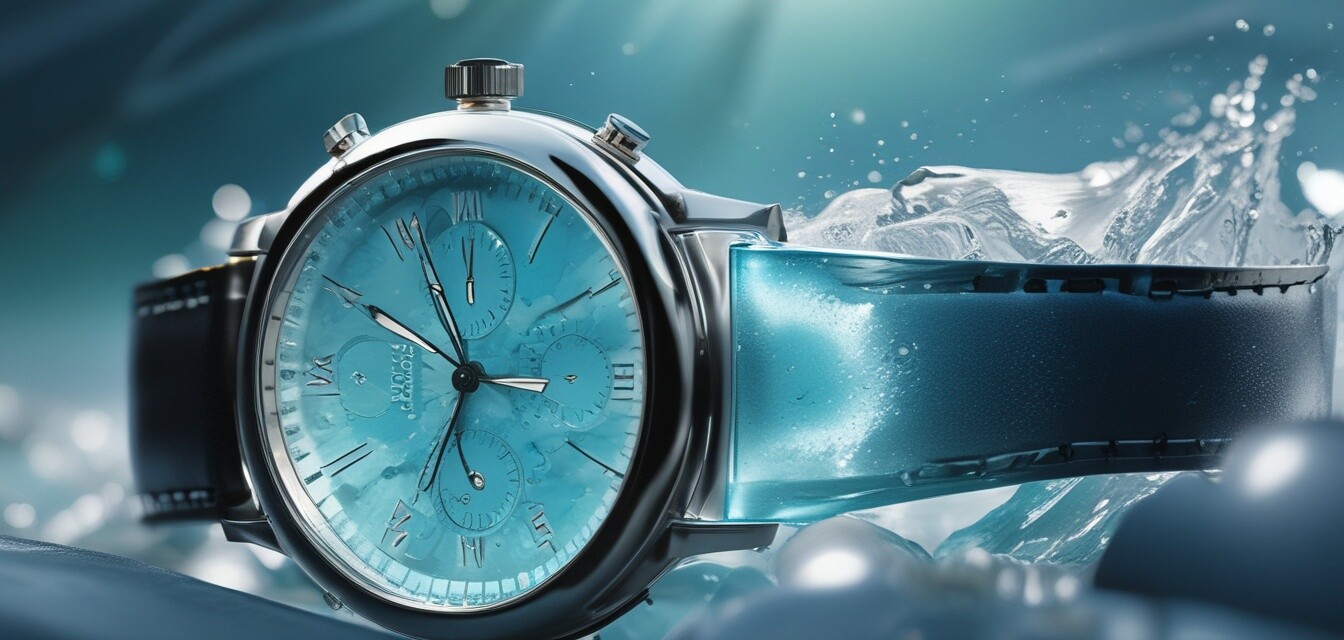
Understanding Watch Water Resistance Ratings
Watches are more than mere time-tellers; they are pieces of art that reflect one’s lifestyle and personal style. One of the essential features to consider when purchasing a watch is its water resistance rating. This article clarifies the significance of water resistance ratings and helps you choose a timepiece that suits your daily activities and adventures.
Key Takeaways
- Water resistance ratings indicate how well a watch can withstand exposure to water.
- The rating system ranges from simple splash resistance to diving capabilities.
- Understanding your lifestyle will guide you in selecting a watch with an appropriate water resistance rating.
- Regular maintenance ensures your luxury watch remains in optimal condition.
- Luxury watches also extend beyond functionality; they symbolize personal style and sophistication.
What Are Water Resistance Ratings?
Water resistance ratings are crucial specifications that define how well a watch can function when exposed to water. These ratings are measured in meters (m) or atmospheres (ATM) and determine the degree to which the watch can resist water penetration.
| Water Resistance Rating | Suitable Activities |
|---|---|
| 3 ATM (30m) | Light rain and splashes |
| 5 ATM (50m) | Washing hands, swimming in shallow water |
| 10 ATM (100m) | Swimming and snorkeling |
| 20 ATM (200m) | Professional diving |
How to Choose a Watch Based on Your Lifestyle
Selecting a watch that aligns with your lifestyle requires understanding water resistance ratings and your daily activities. Here are some factors to consider:
- Activity Level: Do you swim regularly? Are you active in water sports? Consider higher water resistance ratings.
- Work Environment: If you work in environments where water exposure is common, opt for a robust water-resistant watch.
- Fashion vs. Function: Balance aesthetics with functionality, especially if you want to showcase your watch at formal events or casual outings.
For more extensive insights on how to pick the right watch, explore our Buying Guides.
The Water Resistance Test
Many luxury watches undergo rigorous testing to ensure that their water resistance ratings are accurate. Different manufacturers may employ various methods, so it's key to ensure that your watch is certified by a reputable source.
Common testing methods include:
- Pressure testing underwater.
- Exposure to high-pressure air.
- Thermal shock tests to assess how temperature changes affect the seals.
Maintaining Your Water-Resistant Watch
Taking care of your luxury watch will enhance its durability and maintain its performance. Here are some tips:
Tips for Maintaining Water Resistance
- Regularly check the seals and gaskets.
- Have your watch pressure tested every 1-2 years (especially after battery changes).
- Avoid exposing your watch to hot water, which can compromise its water resistance.
- Clean the watch regularly with a soft cloth after exposure to saltwater or chlorine.
Common Misconceptions About Water Resistance
Many people misunderstand water resistance ratings. Let’s debunk some common myths:
- Myth 1: A watch rated for 100 m can be used for deep-sea diving.
Fact: Ratings denote static water pressure; dynamic pressure while diving increases, so be cautious. - Myth 2: Water resistance means you can swim continuously.
Fact: Extended exposure to water, especially at high temperatures, can affect gaskets. - Myth 3: All watches are the same regarding water resistance.
Fact: Each watch has distinct specifications – check ratings for your specific model.
For insights into other watch care practices, visit our Lifestyle and Care section.
Conclusion
Understanding watch water resistance ratings is essential for choosing a luxury timepiece that aligns with your activities. Always consider your lifestyle, conduct proper maintenance, and don’t fall for common misconceptions. A well-cared-for luxury watch can serve as a stunning piece of art while remaining a reliable companion for your adventures.
Pros
- Protects against water damage
- Enhances watch longevity
- Increases versatility for activities
Cons
- Can require regular maintenance
- Higher ratings may come with a higher price tag

